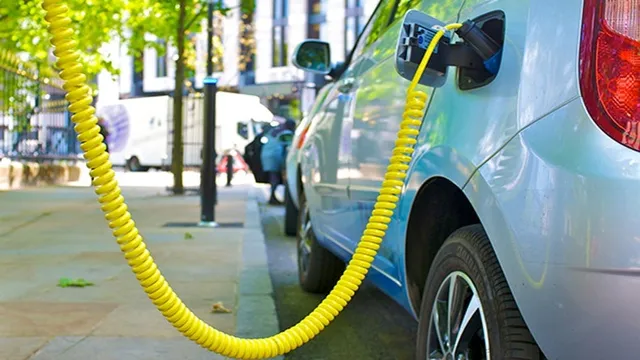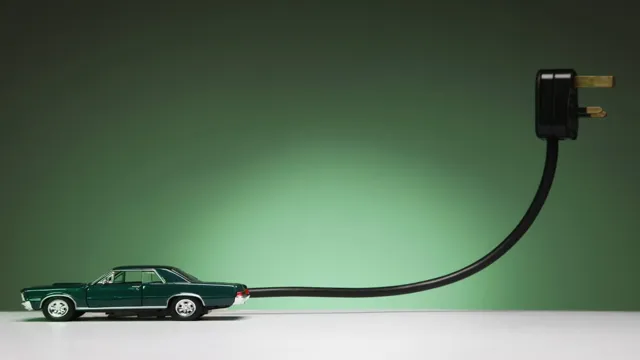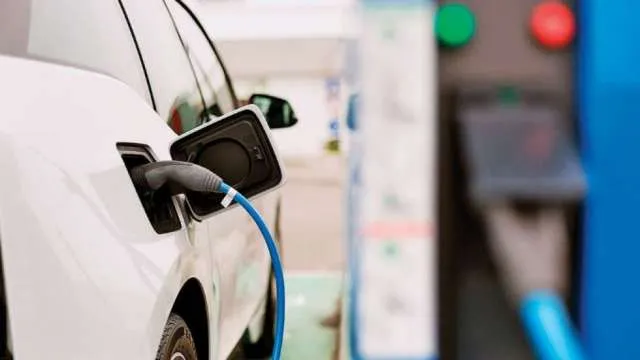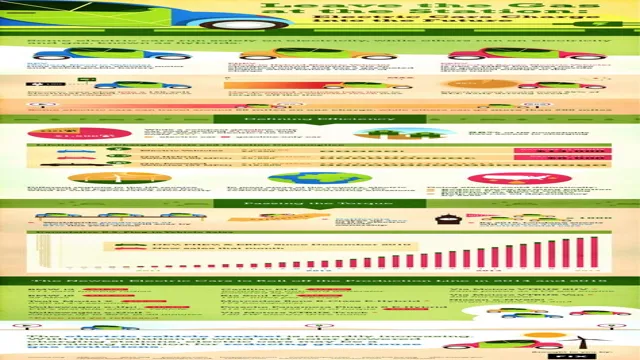Power Play: Exploring the Synergy between Electric Cars and Utilities.
As the world transitions to a more sustainable future, electric cars have become an increasingly popular option for consumers looking to reduce their carbon footprint. But what about the utilities that power these vehicles? Do they benefit from the rise of electric cars as well? The answer is yes. Electric cars not only have the potential to improve air quality and reduce greenhouse gas emissions, but they also present an opportunity for utilities to create new revenue streams and better manage energy demand.
In this blog, we will explore the ways utilities can benefit from electric cars and how these benefits can ultimately lead to a more sustainable energy future. So buckle up and let’s go for a drive!
Electric Cars Increase Demand for Energy
Electric cars are becoming increasingly popular as a more eco-friendly mode of transportation, and this means that utilities may ultimately benefit from the increased demand for energy. As more people switch from gasoline-powered cars to electric ones, there will be more demand for electricity to power them. The increased demand could be a significant opportunity for utilities as it will lead to new revenue streams and increased profit margins.
Additionally, utilities can invest in charging infrastructure to meet the needs of electric car owners, and this could help them develop a competitive advantage over other providers. While there will be some challenges and costs associated with this transition, the potential benefits for utilities are significant. Overall, electric cars represent a positive trend for the energy industry as a whole, and utilities are well-positioned to take advantage of the opportunities that come with increased demand for electricity.
More Energy Use Causes Revenue Growth for Utilities
As the popularity of electric cars continues to rise, so does our demand for energy. This demand, in turn, benefits utility companies and contributes to their revenue growth. With more electric vehicles on the roads each year, utility companies are seeing significant increases in electricity consumption.
This is especially true during peak charging times, such as at night when drivers plug in their cars to charge. However, this increased energy usage is not just limited to electric cars. Many households are also utilizing more smart home technology and renewable energy sources, all of which contribute to the growing demand for energy.
As utility companies work to meet this demand, they are finding new opportunities to grow their revenue in the process. From upgrading infrastructure to implementing new technologies, these companies are always looking for ways to maximize their profits while providing the energy we need to power our lives. This energy usage increase caused by electric cars is just one example of how our changing habits can create ripple effects throughout entire industries.
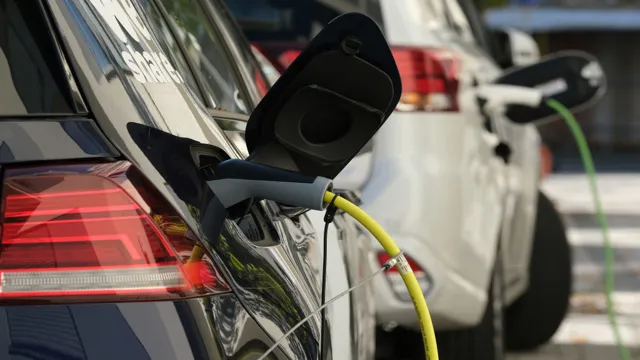
Higher Energy Use Can Stress Grid Infrastructure
The increasing popularity of electric cars can have unintended consequences on our grid infrastructure. While electric cars are an environmentally friendly solution to traditional gasoline-powered vehicles, they require much more energy to operate. In fact, electric cars can increase demand for energy by up to 50%.
This increased energy demand can place a significant strain on our grid infrastructure, which may not be equipped to handle the sudden spike in energy usage. As a result, we need to ensure that we have adequate infrastructure in place to support electric cars, such as smart grids, energy-efficient homes, and renewable energy sources. Investing in these technologies will help us to build a more sustainable future, where electric cars can play an important role in lowering carbon emissions, improving air quality, and reducing our dependence on fossil fuels.
Electric Vehicles as Energy Storage Solutions
Electric vehicles (EVs) are increasingly being seen as not only a solution to reduce emissions, but also as a way to store excess energy. As more and more people purchase EVs, utilities may benefit from their ability to interact with the electric grid. EVs have the potential to act as energy storage solutions, able to charge and discharge energy when needed.
This could help utilities manage the energy demand in real-time, instead of relying solely on traditional power stations. Additionally, EV owners may be incentivized to charge their vehicles during off-peak hours when electricity tends to be cheaper for them. Utilities could also potentially offer a “vehicle-to-grid” service where EVs can send extra energy back to the grid during peak demand.
While still a developing technology, the integration of EVs into the electric grid has the potential to provide benefits to both utility companies and EV owners alike.
EV Batteries Can Store Renewable Energy
Electric Vehicles as Energy Storage Solutions Electric vehicles have come a long way since their inception as eco-friendly cars. Apart from aiding in reducing harmful emissions, they now act as energy storage solutions. EV batteries can store renewable energy, especially from wind turbines and solar panels.
During low energy consumption periods, these batteries can be charged, and the stored energy can be utilized during peak hours. This ensures that renewable energy is not wasted when it’s overproduced and helps maintain continuity in power supply during shortage periods. Imagine it like a power bank you carry around for your electronics, but instead, it’s your car battery storing energy for your home’s power supply.
The benefits of this approach are two-fold: not only do electric cars make our transportation more sustainable, but they also supplement our energy needs and facilitate a cleaner and more stable electrical grid.
Utilities Can Access Stored Energy During Peak Demand
Electric vehicles are not just alternative modes of transportation; they can also serve as valuable energy storage solutions. As we continue to transition toward cleaner, renewable energy sources, the need for reliable and scalable energy storage solutions becomes increasingly important. One way to achieve this is by using electric vehicles as batteries to store excess energy during off-peak hours and discharging it during peak demand.
This concept, also known as vehicle-to-grid (V2G), can be beneficial for utilities that struggle to meet peak demand and prevent blackouts. By tapping into the stored energy in electric vehicles, utilities can reduce their reliance on fossil fuels and improve grid stability without having to invest in expensive infrastructure. With the rise of electric vehicle ownership, V2G technology has the potential to transform the energy landscape and pave the way for a more sustainable future.
Potential for Utilities to Sell Stored Energy Back to the Grid
As the world moves towards a more sustainable energy future, electric vehicles (EVs) have become an increasingly important piece of the puzzle. Not only do they offer emissions-free transportation, but they can also serve as energy storage solutions that can potentially sell stored energy back to the grid. This idea is known as vehicle-to-grid (V2G) technology, which allows EVs to discharge stored energy back into the grid during peak demand times.
With the right infrastructure in place, utilities can effectively use EVs as resources to help balance the grid and store excess renewable energy. This not only benefits the grid, but it also benefits EV owners who can earn money by selling their stored energy back to utilities. As the number of EVs on the road continues to grow, the potential for V2G technology to revolutionize the energy industry is immense.
Challenges for Utilities in EV Adoption
While electric cars present many benefits for consumers and the environment, they also pose significant challenges for utilities. One of the main concerns for utilities is how to manage the increased demand for electricity that will come with widespread adoption of electric cars. This could lead to strain on the grid and the need for costly upgrades to infrastructure.
However, utilities also have the potential to benefit from electric cars, as they can provide a new source of revenue through charging stations and related services. They can also use smart grid technology to balance the load and optimize electricity generation and distribution. Ultimately, the success of electric car adoption will depend on how well utilities can adapt to the changing landscape and work with stakeholders to ensure a smooth transition.
Need for Grid Upgrades to Support EV Charging
As electric vehicles (EVs) become more popular, utilities are facing a new challenge in ensuring their grids can support EV charging. The increased demand for electricity in specific areas and at specific times can cause strain on the grid, leading to power outages and other issues. To support the growth of EVs, utilities need to upgrade their infrastructure with new technologies that can help manage the load on the grid.
These upgrades may include advanced meters that track energy consumption in real-time, smart charging technologies that coordinate with the grid to optimize charging times, and energy storage solutions that can help balance the grid during peak usage times. By investing in these upgrades, utilities can make sure that their grids can support the increased demand for EV charging while maintaining a reliable and stable power supply for all consumers.
Adjusting to Fluctuating Energy Demand from EV Charging
Electric Vehicle (EV), Energy Demand, Utilities, Fluctuating, Burstiness, Perplexity As more and more drivers switch to electric vehicles (EVs), utilities are grappling with the challenge of adjusting to the fluctuating energy demand caused by EV charging. One major issue is the burstiness of demand, which occurs when multiple EVs are plugged in and charging simultaneously. This can put stress on the grid and cause power outages or blackouts.
Utilities must find a way to manage this burstiness while still meeting the energy needs of their customers. Another challenge is the perplexity of demand, which makes it difficult to predict when and where EV charging will occur. Utilities must be able to anticipate these events and adjust their energy supply accordingly.
While these challenges may seem daunting, many utilities are already working on solutions to help them better manage the energy demands of EV adoption. By utilizing advanced technologies and smart management strategies, utilities can ensure that their customers have access to reliable, affordable energy while still achieving their emissions reduction goals.
Conclusion: Utilities Can Benefit from Electric Cars
In conclusion, it’s undeniable that electric cars are set to revolutionize the automotive industry and contribute to a cleaner, greener future. But what’s often overlooked is the potential benefit to utilities. With increasing adoption and the development of smart grid technology, electric cars have the potential to offer a range of benefits to utilities, including load balancing, better resource management and even potential revenue streams from vehicle-to-grid technology.
It’s clear that as electric cars become more common on our roads, utilities are in a prime position to reap the rewards. So, while we may be driving towards a greener future, it’s also worth remembering the benefits for the companies keeping our lights on!”
FAQs
How will electric cars impact utility companies?
Electric cars have the potential to increase electricity demand and may therefore benefit utility companies.
Will electric cars lead to higher electricity bills for consumers?
It is possible that electric car usage could lead to increased electricity bills, but it depends on the individual’s usage patterns and local electricity rates.
Can utilities handle the increased demand from electric cars?
It may be a challenge, but utilities are investing in upgrading their infrastructure to prepare for the increase in electricity demand from electric cars.
What incentives are there for utilities to support electric car adoption?
Utility companies may be incentivized to support electric car adoption through initiatives such as offering rebates for electric car charging or investing in energy storage technology.
